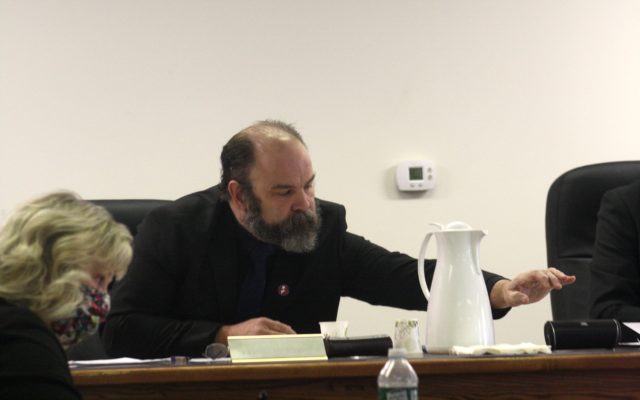
Piscataquis commissioners unlikely to face penalties for adopting resolution in secret
By David Marino Jr., Bangor Daily News Staff
Piscataquis County’s three commissioners are unlikely to face penalties for adopting a resolution against Gov. Janet Mills’ COVID-19 prevention measures in secret, according to experts in Maine’s open government laws.
Those experts agree that the commissioners violated Maine’s Freedom of Access Act in crafting and adopting the resolution. They also agree that penalties outlined in the law may not be enough, and especially when there’s little enforcement.
“The law, as it stands now, is relatively toothless,” said Sigmund Schutz, a Portland lawyer who specializes in open government cases. “Few in government want to be accused of acting in secret, but there are really no serious financial penalties.”
The Piscataquis County commissioners signed the resolution — which includes a number of false statements, such as a declaration that wearing face coverings causes respiratory disease — during a public meeting last week. But they had previously adopted it outside of public meetings, using phone calls and emails to develop and approve the measure.
Chair James White said commissioners didn’t violate open meeting laws because not all three participated in the same phone calls and emails. But three attorneys have told the Bangor Daily News that their actions violated the law, because they were conducting public business and making decisions in a session to which members of the public had no access.
Marc Malon, a spokesperson for Maine Attorney General Aaron Frey, said the state’s public access ombudsman, Brenda Kielty, would be “looking into” the commissioners’ actions after receiving complaints from the public.
The mechanisms in Maine’s Freedom of Access Act to deter abuse — including a $500 fine paid by a government entity with one or more members who willfully violated the act — are seldom enforced, Schutz said.
Indeed, the state’s public access ombudsman, a role the Maine Legislature created in 2007, takes an education- and mediation-based approach, rather than a punitive one, to helping residents and government agencies resolve Freedom of Access Act-related disputes.
Maine’s Legislature approved the Freedom of Access Act in 1959 amid the adoption of bills across the country seeking to encourage open government. The federal Freedom of Information Act — which governs federal government operations and records — wouldn’t be signed until seven years later.
However, exceptions to Maine’s right-to-know law have “snowballed” since the legislation was adopted, Schutz said.
There are now hundreds of exemptions to what records the public is allowed to access through records requests, along with a wide range of topics officials can discuss in executive sessions that the public is not allowed to attend.
“Now, the right-to-know law is sort of Swiss Cheese, with many dozens of individual exceptions protecting certain discrete types of records, or discrete meeting subjects, from the public’s right to know,” Schutz said.
Virtually every public official in Maine — from the governor to legislators to county commissioners and members of municipal and school boards — is required to receive training on the act.
Yet, violations are numerous and seldom punished: from a school board advisory committee in Wells holding a secret vote in 2018 on a school mascot, to the Maine Department of Environmental Protection failing to publicly disclose documents while negotiating pollution limits with a Rumford paper mill in 2005, to Presque Isle’s city council holding a password-protected Zoom meeting last year in the early months of the COVID-19 pandemic.
The attorney general’s office rarely seeks fines for such behavior.
In the 2005 Department of Environmental Protection case, for example, Attorney General Steve Rowe decided against seeking a penalty because the state agency didn’t willfully violate the right-to-know law.
A rare case occurred in 2016, however, when the administration of former Maine Gov. Paul LePage paid a $500 fine levied by then-Attorney General Janet Mills after a LePage-appointed education reform task force met at the Blaine House behind closed doors.
Malon said the attorney general’s office did not have a full record of Freedom of Access Act fines that have been imposed.
Someone who thinks that a governmental body has denied the public’s access to a meeting or proceeding can seek recourse in superior court, Schutz said. A judge can force the release of documents wrongfully denied, as well as render a decision improperly made in executive session null and void. Yet such action comes with a steep price tag for the resident seeking legal recourse.
Schutz said Maine’s law should be changed to require that the state pay plaintiffs’ legal fees if a governmental body is found to have violated the law. It’s a step he said other states had taken.
He also said greater sanctions for intentional non-compliance would ensure that officials follow the law.
Kielty, Maine’s public access ombudsman, declined to comment on the Piscataquis County commissioners’ case, citing the need to be neutral in her role.